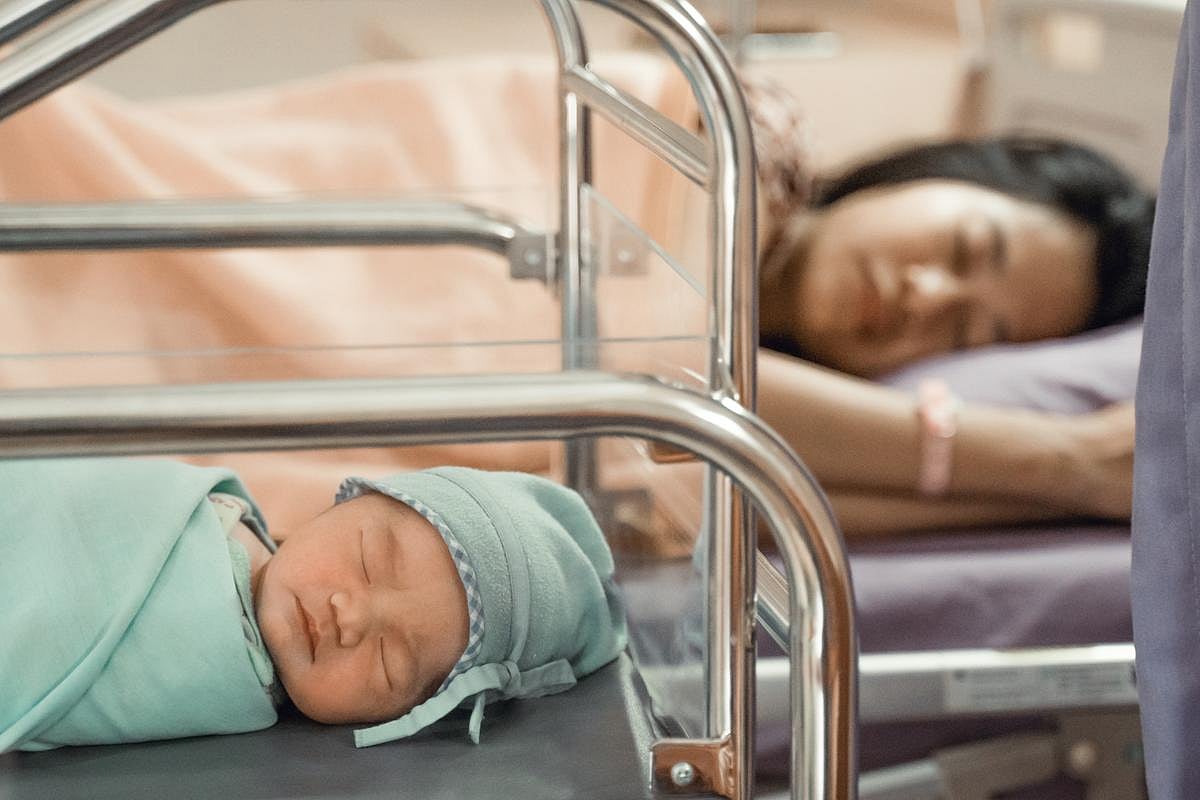Get Healthy!

- Posted November 17, 2025
General Anesthesia Safe For C-sections, Analysis Argues
Women undergoing a cesarean section delivery typically have the procedure while awake, with only a nerve blocker protecting them from the pain.
For some, the pain can be overwhelming, even after the block, but this might be unnecessary, a new evidence review argues.
General anesthesia appears to be safe for both mother and baby during a C-section, researchers recently reported in the journal Anesthesiology.
Babies born with a nerve blocker have slightly better signs of newborn health, but not enough to be clinically meaningful, researchers said.
“No patient should have to experience pain during cesarean section; as an anesthesiologist, I never want someone to feel forced to choose between their baby’s health and not having to experience the pain of surgery,” said senior researcher Dr. Mark Neuman, a professor of anesthesiology with the Perelman School of Medicine at the University of Pennsylvania.
“Since regional anesthesia is so widely used, it’s common for patients to feel that a spinal or epidural block is the only safe option for cesarean section,” Neuman said in a news release. “But as our study shows, anesthesia type during pregnancy does not need to be one-size-fits-all."
In the U.S., 1 in every 3 deliveries is done by C-section, researchers said in background notes.
Doctors have long favored nerve blockers over general anesthesia over concerns that it might affect newborns’ health, researchers said.
The practice has also been shaped by societal pressures enforcing the idea that mothers need to be awake during delivery, to witness their baby’s first cry and have the “perfect” birth moment, researchers said.
However, up to 1 in 6 patients who receive a nerve blocker may feel pain during their C-section – and for some, this pain can be traumatic and excruciating, researchers said.
For this report, researchers pooled data from 36 clinical trials involving nearly 3,500 deliveries that compared general anesthesia versus nerve blockers during a C-section. The studies took place between 1994 and 2023.
Results showed that babies born under a nerve blocker had slightly higher scores on the Apgar test, which is used to evaluate newborn health at 1 and 5 minutes after delivery.
Babies born under general anesthesia also were slightly more likely to need breathing support immediately after birth, researchers said.
But there was no increased risk of needing intensive care in a NICU following delivery among babies born with general anesthesia, the study found.
Overall, the differences weren’t significant enough to infer that general anesthesia is harmful to babies, researchers concluded.
Researchers said this doesn’t mean general anesthesia should replace nerve blockers — only that it’s a reasonable alternative for women worried about surgical pain.
“For patients who are open to regional anesthesia, spinal or epidural block remain great first choice options,” Neuman emphasized. “But having conversations with patients about general anesthesia doesn’t need to be taboo. Patients deserve to know they have options, and our study helps provide the evidence to support those discussions.”
Dr. Sarah Langer, a resident in anesthesiology at the Perelman School of Medicine, led the study.
“This study equips women with evidence-based context about the use of general anesthesia during C-section," she said in a news release. “Childbirth is a physically and emotionally demanding process, but we do not want patients to feel like there aren’t options when it comes to their anesthesia for C-section.”
Researchers noted that most of the trials in the analysis occurred outside North America, highlighting the need for U.S.-based trials comparing the two approaches.
More information
The American Society of Anesthesiologists has more on regional anesthesia.
SOURCE: Perelman School of Medicine at the University of Pennsylvania, news release, Nov. 10, 2025





